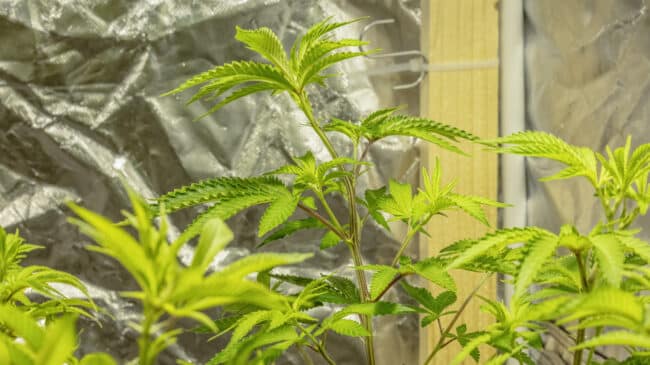A thriving market at risk
- Since the 2018 Farm Bill federally legalized hemp and its derivatives, the hemp cannabinoid market has grown into a $3 billion interstate industry, including both non-intoxicating therapeutic products like cannabidiol (CBD) and intoxicating hemp products that mimic the psychoactive effects of marijuana. Courts have interpreted federal statute to mean that even chemically modified and intoxicating hemp extracts are federally legal hemp products.
- Consumer demand for these products has surged, in part due to federal marijuana prohibition and restrictive state cannabis laws that limit consumer access. While less than 30% of legal cannabis businesses were profitable in 2024, hemp cannabinoids have proved a lifeline for farmers and other businesses, generating $241 million in farm income in 2023 alone.
The risk of overregulation or prohibition
- Despite its economic and consumer benefits, the hemp market faces growing threats from heavy-handed state regulation and outright bans. In the absence of federal product standards, many states have adopted reactionary policies that mimic the burdensome rules stifling the cannabis industry or outlaw intoxicating hemp cannabinoids.
- Prohibition and excessive restrictions on products consumers want have well-documented consequences, including fueling illicit markets that operate without oversight, compromising public health with unregulated and mislabeled products, increasing youth access due to lax age-verification, burdening law enforcement with low-priority enforcement efforts, undermining legitimate businesses, and depriving states of tax revenue.
A smarter approach to regulation
- Intoxicating hemp products pose no greater risk to society than other intoxicating goods, like alcohol or marijuana. With thoughtful regulation, they can be produced safely and sold responsibly, ensuring consumer protection while fostering economic growth. To achieve this, Reason Foundation’s Model Legislation for Optimal State Regulation of Hemp Cannabinoids recommends that states adopt hemp cannabinoid regulations that:
- Establish clear, science-based product safety and manufacturing standards;
- Regulate, don’t ban, naturally occurring and synthesized hemp cannabinoids;
- Ensure age restrictions and responsible retailing;
- Mandate reasonable testing and labeling requirements; and
- Avoid excessive fees and taxes that undermine legal market viability.
Full Backgrounder: Optimal framework for the state regulation of hemp cannabinoids


